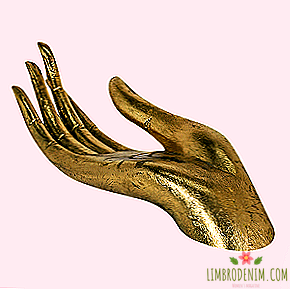"Dry and does not smell": Why are we ashamed to sweat
We have heard from childhood that giving deodorants or shower gels indecent because it is perceived as a hint of lack of proper hygiene. But between the smell of a man who had not taken a shower for a couple of months and the perfect dryness of the armpits in a tight white dress is a mass of intermediate options. To what extent is it permissible to sweat in society? Is it necessary to worry about wet spots under the arms? And why work "by the sweat of the face" is commendable only in words, but in fact is considered indecent?
Why do we sweat and that's fine
Sweating is a powerful mechanism of thermoregulation that protects the body from overheating. Evaporating from the surface of the skin, sweat gland secretions cool us. That is why people who are unable to sweat, sharply increases the risk of heat stroke. The sweat glands respond to signals from the brain about an elevated temperature, as well as hormonal signals and neurotransmitters produced during stress. In general, men sweat a little more than women, and no definitive explanation has been found yet. According to one theory, the ancient male hunters were forced to adapt to the long stay under the scorching sun, which led to more intense sweating. True, most likely, the reason for the fact that, on average, men sweat more than women, are hormonal differences. The final answer to the question of why this is happening, scientists have yet to learn. Of course, we are talking about averaged men and women, and do not forget about individual differences. The range of norms is very wide, and two completely healthy people with normal hormonal background can sweat in different ways.
There is also the problem of hyperhidrosis - a condition in which a person sweats many times stronger than the average. Hyperhidrosis can be primary when the hyperfunction of the sweat glands occurs on its own, and secondary when it is caused by other conditions or diseases - for example, menopause, diabetes, obesity, or stress. Taking certain medications can also increase sweating. Stress hyperhidrosis is one of the most difficult situations, the state of which is based on the principle of a "vicious circle": a person experiences that he will sweat in public and sweat even more from excitement.
When we play sports, we are not ashamed to sweat and even proudly tell about it: “The new coach gave such a load that after three minutes the whole back was wet.” Active sweating is associated with high-quality training, and even with the improvement and cleansing of the body of toxins, even mythical ones (in fact, toxins are eliminated primarily with urine and feces, and not with sweat). No one wrinkles his nose when he hears that at high temperatures it doesn’t hurt to sweat properly under the blanket. We go to saunas and baths specifically to sweat well, and we regard this as part of proper self-care. Strong expressions associated with sweat, also do not indicate that it is something bad. "It works hard" means hardworking and diligently; money earned "by sweat and blood" - honestly deserved.
Where did the prejudices about sweat come from
So why, if sweating is good, is there a stigma associated with wet spots on clothes, sweat on the forehead and wet palms? When does a good stop being decent? Where did the cult of perfectly dry armpits come from? From the same place, from where the cult of the absence of cellulite or wrinkles around the eyes. It is known that the task of marketing is not just to sell something necessary, but to make the buyer think that he needs this thing. Advertising gives us antiperspirants as something vital: “a T-shirt is dry and does not smell at all” - this is “cool and correct”, which means that a wet T-shirt is something indecent. A typical advertisement for sweat-absorbing deodorants or pads is based on the fact that it is embarrassing to be a living person with normal physiological functions. We buy deodorants one by one, and damned wet spots continue to appear. Caught on someone's thoughtful look - and everything, hello, complexes, "surely everyone looks at me, because I'm sweating."
Sweating is presented in this light without any reason - as a self-evident fault. In the US during the election debate, where all means are good, Donald Trump repeatedly stated that another candidate, Marco Rubio, was sweating too much: “He’s all wet, as if he’d just got out of the pool! When we deal with Putin, we’ll need people who don't sweat. " Gloss and movies also do not reduce the degree. Women in the positions of leaders are depicted in bright dresses ideally fitting cut, including in the armpits. Probably, modern business culture idealizes people who are deprived of not only emotional, but also physiological reactions; we are invited to become in some way robots who are not sad, do not menstruate and, of course, do not sweat. And since it is not customary to discuss this issue in society, many people begin to think that other people do sweat much less (even the designer of the British Queen confirmed in an interview that Her Majesty never sweats).
How to behave and why not be shy
Excessive sweating can cause serious inconvenience - from slipping out of the fingers of the handle and unresponsive stains on clothes to the embarrassment of giving a hand when meeting or fearing to speak in public. Half of patients with axillary (axillary) hyperhidrosis are not self-confident due to hyperhidrosis, and 20% suffer from depression. Among people with palmar hyperhidrosis, 77% are shy of shaking hands, and 90%, that is, almost everyone, feel uneasy in social situations. Women with hyperhidrosis are often embarrassed to see a doctor, because in society it is generally accepted that "ladies don't sweat."
What to do with all this? First, try not to complex and not be shy. People are not robots - everyone sweats. The range of normal sweating is very wide: according to various sources, the normal amount of sweat per day can be from 500 ml to 15 liters. Therefore, it is not necessary to ascribe to yourself hyperhidrosis, if from time to time in the heat of a T-shirt sticks to the back or palms sweat slightly from excitement.
Secondly, it should be remembered that our armpits, like all other parts of the body, are our own business, and fighting with sweating is not from social, but from practical considerations. After all, the risk of spoiling a cashmere T-shirt is a good excuse for finding an excellent deodorant. We have already told how to choose the right one, find out the difference between deodorants and antiperspirants and understand the myths and facts about the harm of these products to health. In any case, each person determines for himself the permissible level of natural odor, so you shouldn’t exhaust yourself with constraint before others: perhaps, it is worthwhile for them to think about their prejudices regarding this.
If you suspect that you have hyperhidrosis, consult your doctor - this may help to identify diseases that require treatment. Correction of this condition can lead to the elimination of symptoms, that is, excessive sweating. Primary hyperhidrosis, especially local, but not generalized, is corrected by clinical antiperspirants or Botox injections. Finally, if someone close to you suffers from hyperhidrosis or stressful sweating, try to show support. Remember that this condition is difficult to control. A wet palm when shaking hands is not a reason to despise a person, not a sign of viral diseases or evidence of inadequate hygiene.
Amy Roh, a journalist with The Guardian, shamed because of her wet hair after a workout and wrote: “The female body is surrounded by powerful taboos, but their strength is not compared to the strength I feel after jogging.” We should not be ashamed of the fact that they are alive and that our bodies are functioning. And it’s good that the phrase "Ladies don't sweat, they glisten" ("Ladies don't sweat, but shine") turns from an instructively reproachful attitude into an ironic inscription on the girls' T-shirts in the gym.
Photo: Suddora, Luisa Leal - stock.adobe.com







